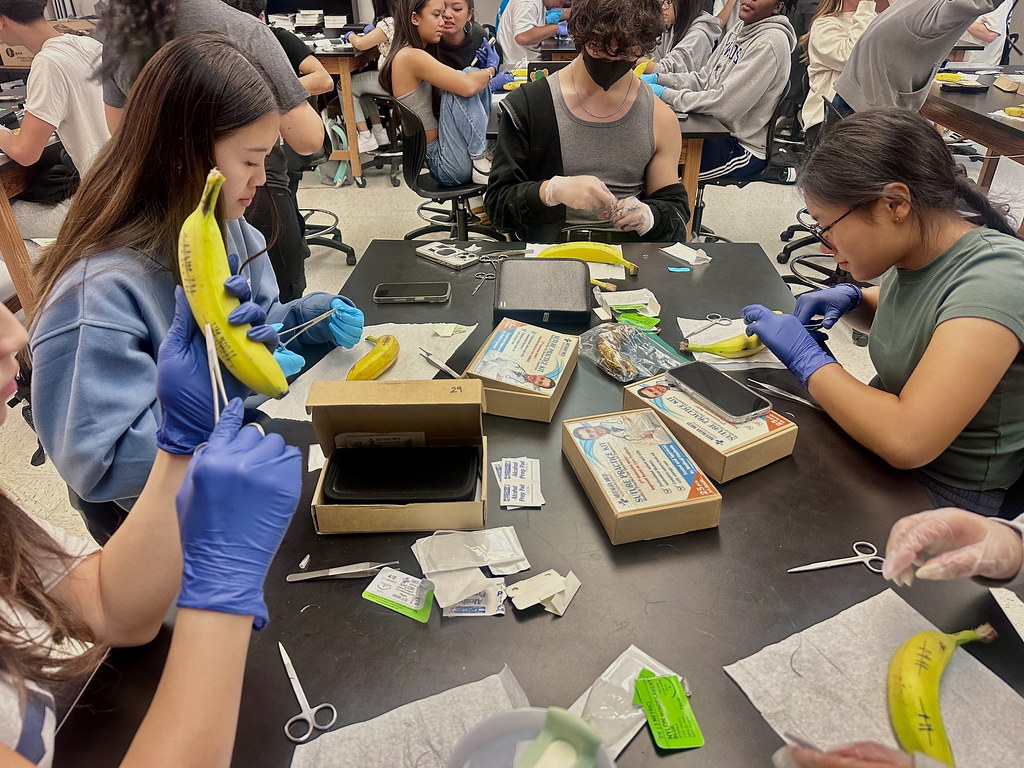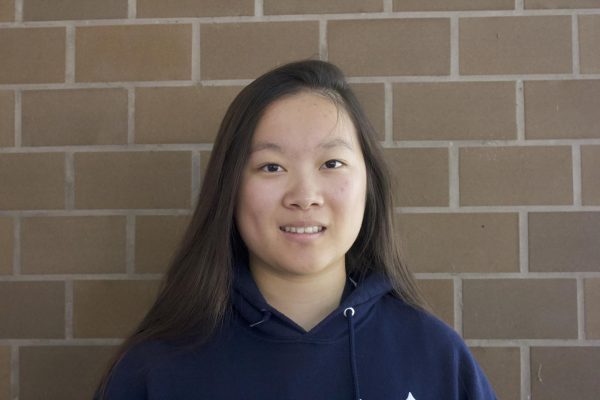
Current DVHS senior Fatimah Hussain founded her first 3D printing business back in 2021. Despite continuing to make three more businesses afterwards, it was her first business where she really learned the most in terms of entrepreneurship.
Unicorn Lock was Hussain’s first business. It is a business that sells locks specifically designed to be easy for adults to open, but difficult for children. In terms of when Hussain initially started, it depends on the criteria. If in terms of when Hussain started acquiring the knowledge and skills needed for Unicorn Lock, that goes way back to middle school when her parents first introduced her to coding and 3D printing.
“We were thinking to expose her to some of the programming side of things,” Jafer Hussain, Fatimah’s father says.
Fatimah started with Scratch, a coding platform for kids. Following this, she took some programming courses for Python. Her parents realized and understood how programming could be unenjoyable for children at that age, so they then turned to Computer Aid Design, a process that designs 2D drawings and 3D models digitally. Her parents decided to get her some software. Hence, she played around with that for a few weeks before her parents got her the Fusion 360 License, a professional Computer Aid Design software.
Hussain also had a bit of start-up experience in middle school, namely founding the speech and debate club at her school.
“That was the first thing, like a seed, for starting up something by herself,” Muham Jafer, Fatimah’s mother said.
In regards to actually coming up with the idea of Unicorn Lock, Fatimah initially came to the idea due to a recurring problem at home.
“I have a baby brother and he loves to open up my cabinets and touch my stuff,” she said.
With a problem at hand, Fatimah decided to solve it by creating her own lock. Considering that she already had some knowledge in both 3D printing and start-ups, it would seem that Fatimah would have a smoother journey. However, despite the initial technological and start-up knowledge, Fatimah still had a long way to go.
“The next step once you design something [is] how you go and print it out because you want to go and feel it, take [it] up and look at that 3D design that comes out of the 3D printer. Then you’re thinking basically how to make a business out of it.” Jafer says.
Fatimah had to overcome these obstacles, such as dealing with malfunctioning printers and getting negative feedback for her product, before she could successfully get her product out.
From Unicorn Lock and onward to her other businesses, Fatimah continuously emphasized on failures and how common it is. She recalled the times when her printers would not run and it would take weeks before they could be fixed.
“There’s been times where I’ve been stuck and I just wanted to stop everything,” Fatmiah said. “There’s been times where I really just wanted to pick up my 3D printer and throw it across the room and I actually have done that once.”
Nevertheless, amongst all the frustration that could come along with making a product, Fatimah repeatedly expresses the help from the mentors that she found through connection platforms such as LinkedIn.
“I had some mentors who really guided and helped me … jumpstart [Unicorn Lock] and a lot of other businesses,” Fatimah said.
Out of all the help and advice that her mentors gave her, Fatimah stated that consistency was the most impactful for her.
“What I used to do [was] that I [worked] on it like crazy, like for a few days, and then totally leave it, work on something else and totally forget about it and then come back to it,” she said.
This lack of consistency would not only lead to slower progress, but also lead to a lack of balance in her life.
“In the beginning of my entrepreneurship journey, all I used to do was 3D printing and designing and just fiddling with my printer..in my free time,” Fatimah expressed. “Like, my grades slipped and I didn’t do anything else except work on my business and that’s not good.”
In addition to improving her consistency and balance, Hussain has also changed in terms of how she approaches other people.
“I think the biggest change that I have seen as a person [in Fatimah] is that now she has more understanding and empathy for other people,” Jafer stated. “She’s very careful about the customer service because she got very conscious about the reviews that [she got].”
It would seem that Hussain would only be conscious because of business profit, but her goal is beyond that.
While Hussain has a total of four businesses, one of her main missions is not merely to run her businesses and sell products, but to create impact in any way possible. It can be in business…or it can be not. The impact doesn’t necessarily have to impact a large number of people either. In fact, compared to who is impacted, the number of people impacted does not matter as much to Hussain.
“Quality is much more important than quantity,” Fatimah Hussain says. “Putting a smile on one person versus 100 means the same to me because I know that I have positively impacted someone.”





